Members of the Security Council’s Informal Expert Group on Women, Peace and Security visit South Sudan
Date:

Members of the Security Council’s Informal Expert Group on Women, Peace and Security (IEG WPS) conducted a four-day mission to South Sudan where they met with government officials, civil society representatives and women’s associations, the leadership of the United Nations Mission in South Sudan (UNMISS), and representatives of UN Women and other UN entities in South Sudan. The purpose of the mission was to learn about the situation of women and girls in the current political context and the implementation of the gender-related provisions of the peace agreement, and to familiarize the Security Council members with the tangible implications on the ground of the women, peace and security language in UNMISS’ mandate and the resolutions on South Sudan adopted by the Security Council.
The visit was the Informal Expert Group’s first visit to South Sudan, the world’s newest nation, which gained independence in 2011. This year, the group was co-chaired by Switzerland and the United Arab Emirates, and UN Women serves as its secretariat since the group was established by Security Council resolution 2242 (2015). Representatives of Switzerland, the United Arab Emirates, the United Kingdom, France, Gabon, Japan, Malta, Mozambique, the Russian Federation, the United States and UN Women as the secretariat joined the visit to South Sudan.
The current peace agreement, known as the Revitalized Agreement on the Resolution of the Conflict in South Sudan (R-ARCCS), was signed in 2018 between President Salva Kiir, Vice President Riek Machar and other parties. In August 2022, the parties agreed on a roadmap extending the transitional period with two years, previously meant to end in February 2023. The transitional period allows South Sudan to continue its work on the implementation of the key provisions of the R-ARCSS, including the establishment of transitional justice mechanisms, the constitution-making process and the first ever elections, which are scheduled to take place in December 2024.
The Government of South Sudan has made several commitments in line with the women, peace and security agenda. The Government will soon be launching its second-generation National Action Plan on Women, Peace and Security (SSNAP-2) for 2023-2027. While the peace agreement includes a 35 per cent quota for women in all executive and transitional institutions and processes, this quota has not been met in most of the commissions set up to implement the peace agreement, or the current government and parliament. In the bodies established most recently, women’s representation stands at 32 percent of the National Constitution Review Commission, 22 percent of the National Election Committee, and 40 percent in the Political Parties Council. Only one of South Sudan’s ten Governors is a woman.
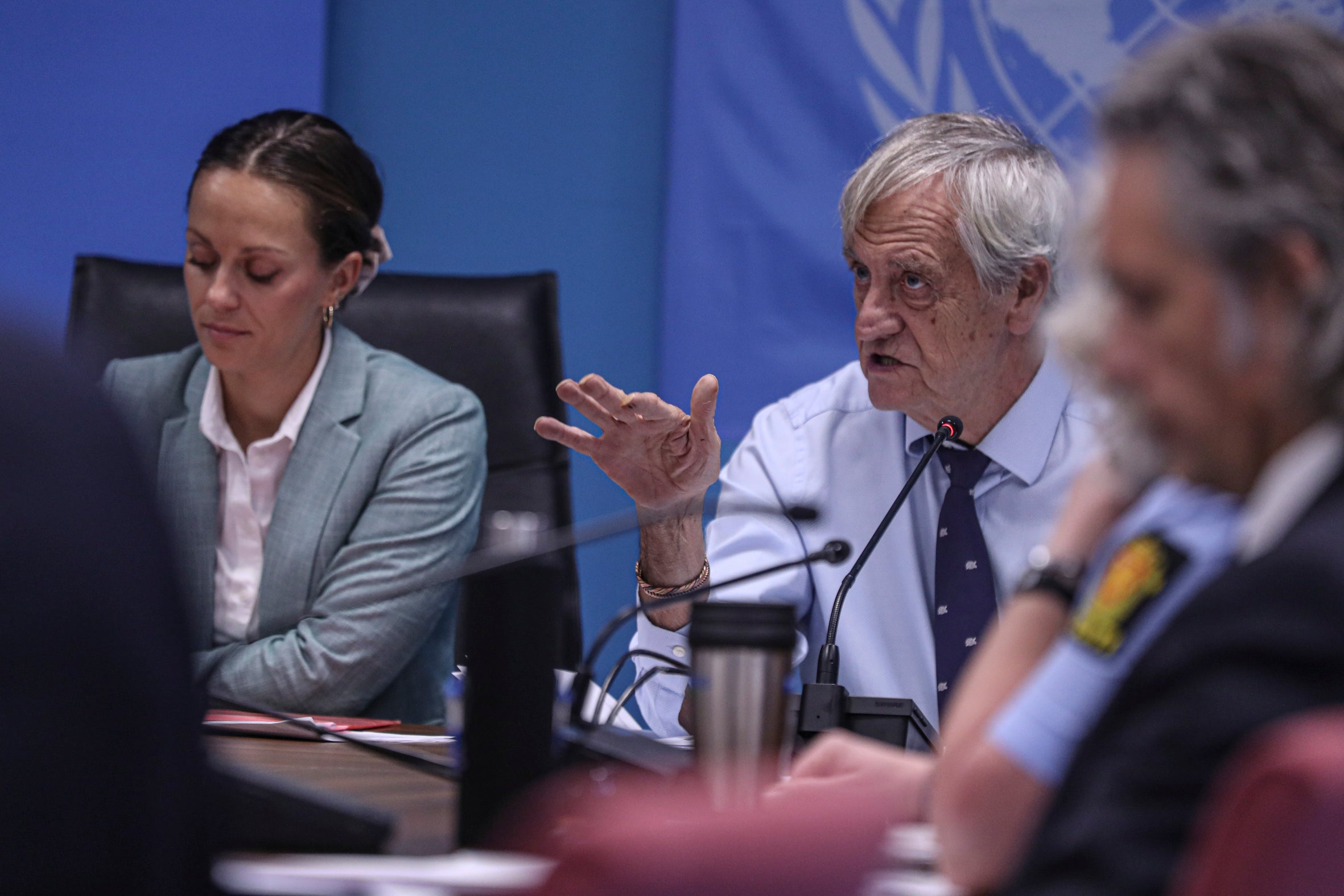
The Informal Expert Group’s mission to South Sudan began with a meeting with SRSG and the Head of UNMISS, Nicolas Haysom, the Deputy Special Representative of the Secretary-General, Guang Cong, and other representatives of UNMISS’ leadership team, including the Force Commander and Police Commissioner. The members of the IEG learned about the current political and humanitarian situation in South Sudan and its impact on South Sudanese women and girls, including the spillover effect of the crisis in Sudan. The SRSG highlighted the need to fulfill the 35 per cent affirmative action, address impunity for conflict-related sexual violence (CRSV) and gender-based violence (GBV) and ensure women’s meaningful participation in the electoral process and the constitution-making process.
In a bilateral meeting with the Minister of Gender, Child and Social Welfare, Honorable Aya Benjamin Warille, the members of the Informal Expert Group discussed the upcoming the second-generation National Action Plan on Women, Peace and Security (SSNAP-2) and pending legislation to advance gender equality and women’s empowerment. The IEG members asked about the status of the Anti-Gender-Based Violence Bill and other mechanisms to protect and support GBV survivors.
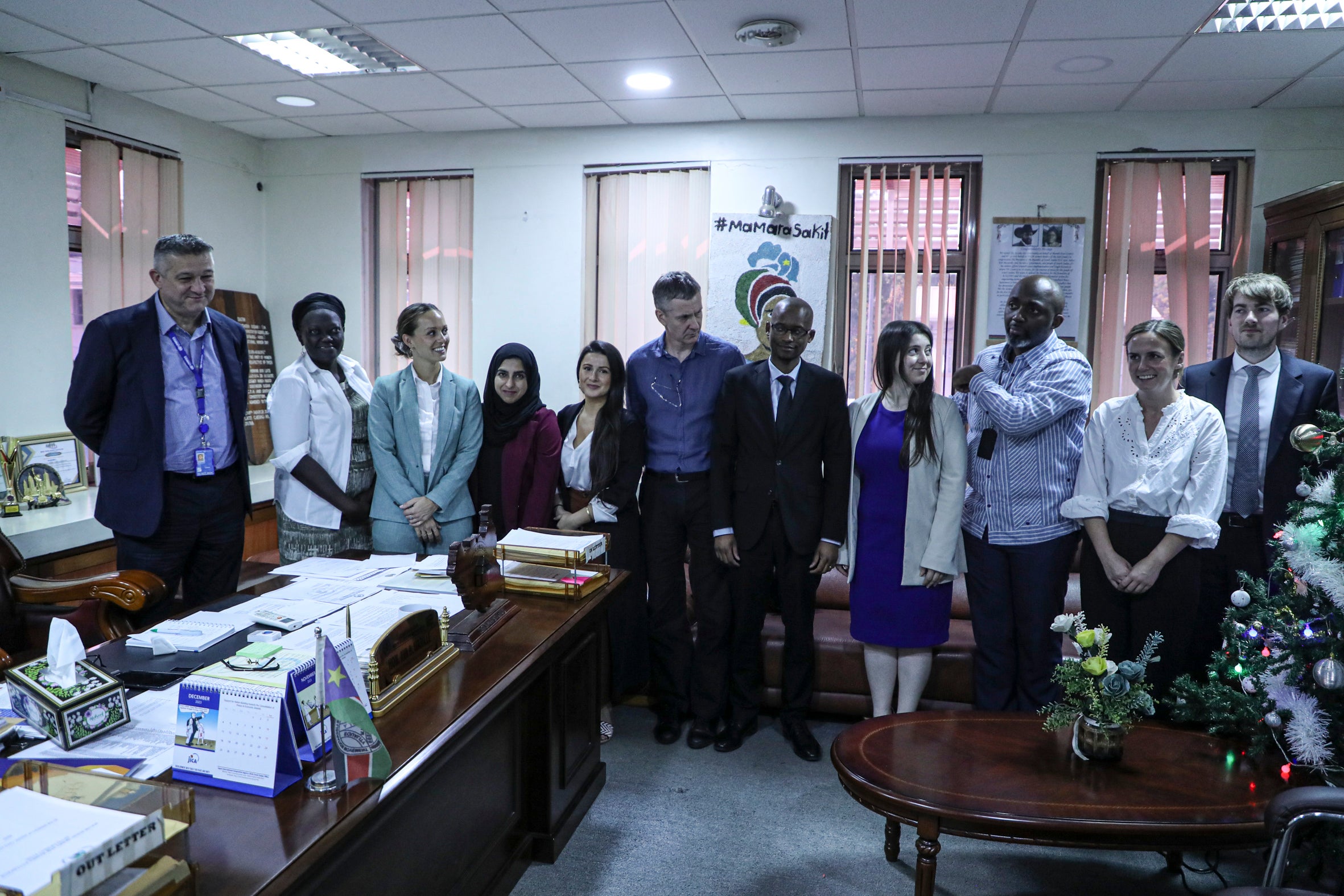
In the meeting with the South Sudan Council of Churches, the IEG members learned about the important role that churches and religious leaders play in the implementation of the WPS agenda in South Sudan. The members of the IEG also met with civil society representatives, the Executive Board of South Sudan National Security Sector Women’s Network and Women’s Parliamentary Caucus to hear their views on the current gender equality situation in the country, their concerns and challenges, as well as civil society’s role in establishing accountability mechanisms for the upcoming elections and the constitution-making process. Among the priority issues voiced by the women were women’s meaningful participation in politics and all levels of the electoral process and the constitution-making process; the need for transitional justice and justice mechanisms to end impunity on gender-based violations; and the need to open up and protect civic space. The women in uniform shared their experiences and showcased the impact of UN Women and UNMISS’ support to Security Sector Reform.
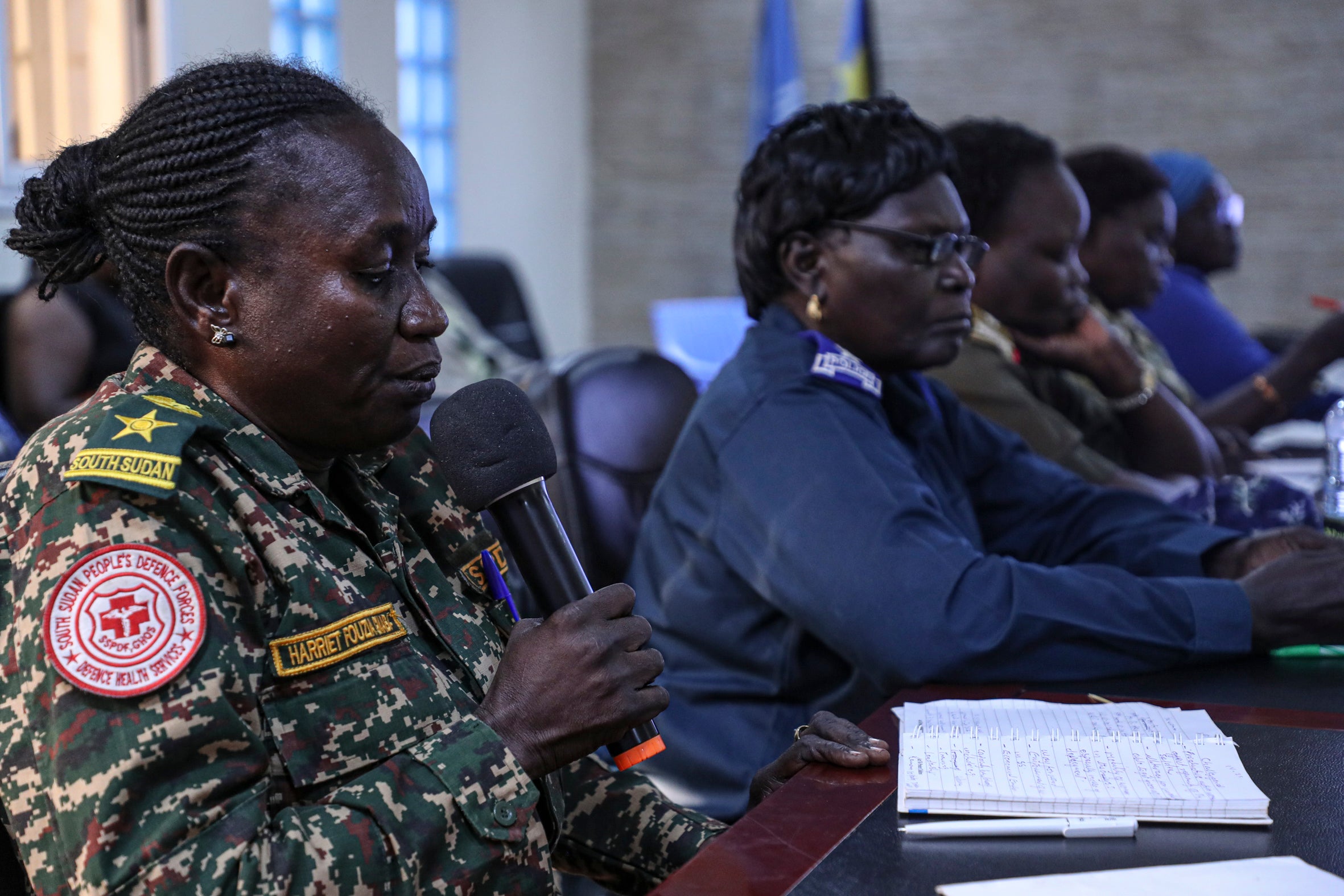
The IEG members also had fruitful meetings with H.E. Mama Rebecca Nyandeng de Mabior, the Vice President for Gender and Youth Cluster (and only woman of South Sudan’s five Vice Presidents), and the Speaker of Parliament, Honorable Nunu Jemma Khumba, where they discussed the implementation of WPS agenda in South Sudan and the roadmap of the transitional period for the 2018 Revitalized Agreement. The discussions featured the importance of women’s participation in political parties and the upcoming elections, biases against women in politics, gaps in women’s economic empowerment, trauma healing, and psychosocial support, and other gender-related provisions of the peace agreement that have yet to be implemented, such as the establishment of a Women’s Enterprise Fund.
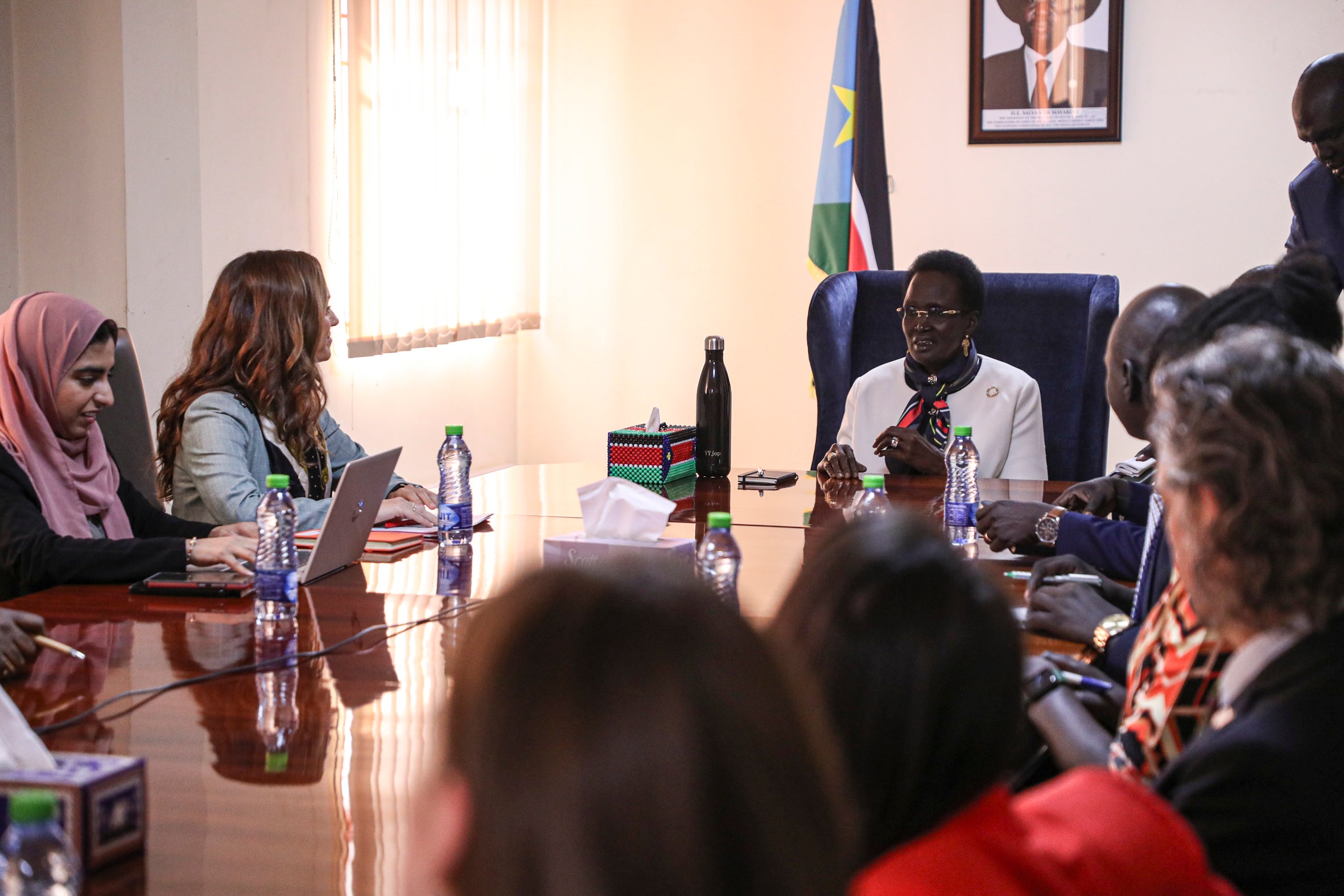
The members of the Informal Expert Group also conducted a field visit to Wau, Western Bahr el Gazal, where they met with South Sudan’s only woman Governor, Honorable Sarah Cleto Hassan, the Women’s Association Center, and civil society representatives. In Western Bahr el Ghazal, four out of seventeen ministers are women (23.5 percent), while women represent 27 percent of the members of parliament. Some of the barriers for women’s participation include marginalization and negative views of women in politics, low literacy and education levels, lack of political will to appoint women in decision-making positions, and lack of adequate facilities and training centers for women. All the representatives emphasized the need to ensure women’s meaningful participation in the electoral and constitution-making processes, with the special emphasis on reaching women at the grassroots level.
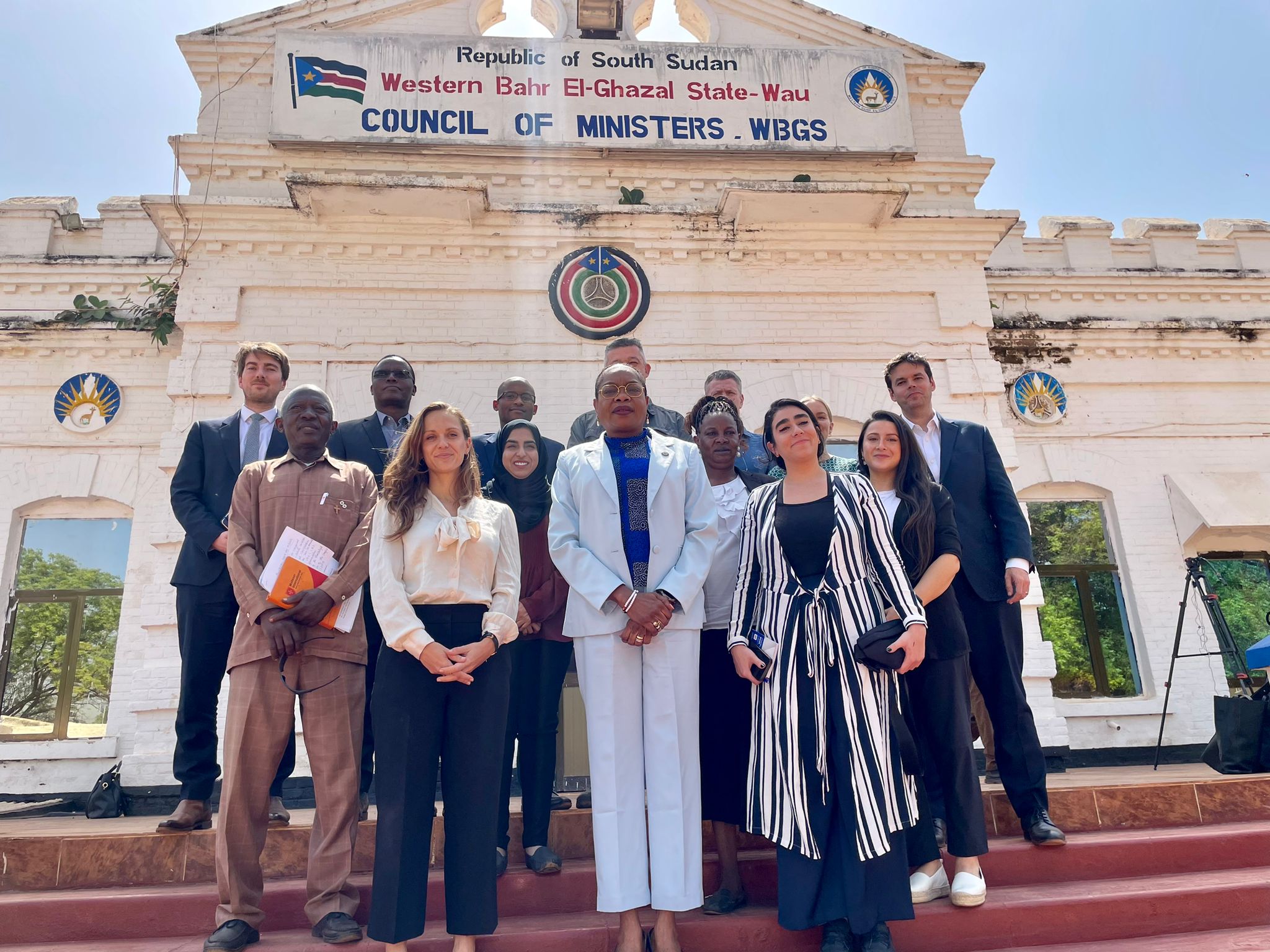
On the last day of the visit to South Sudan, the IEG members visited a demining site managed by the United Nations Mine Action Service (UNMAS) to learn about the contribution of women deminers to South Sudan’s success in clearing landmines over the past decade. Gender mainstreaming in mine action is particularly important in South Sudan and has been central to UNMAS’ work. Due to the patriarchal norms and different levels of decision-making authority, access to information, and control of resources, women are more likely to be exposed to landmines and other explosive remnants or war, have less access to health care following an accident and it is harder for them to participate in and disseminating risk education.
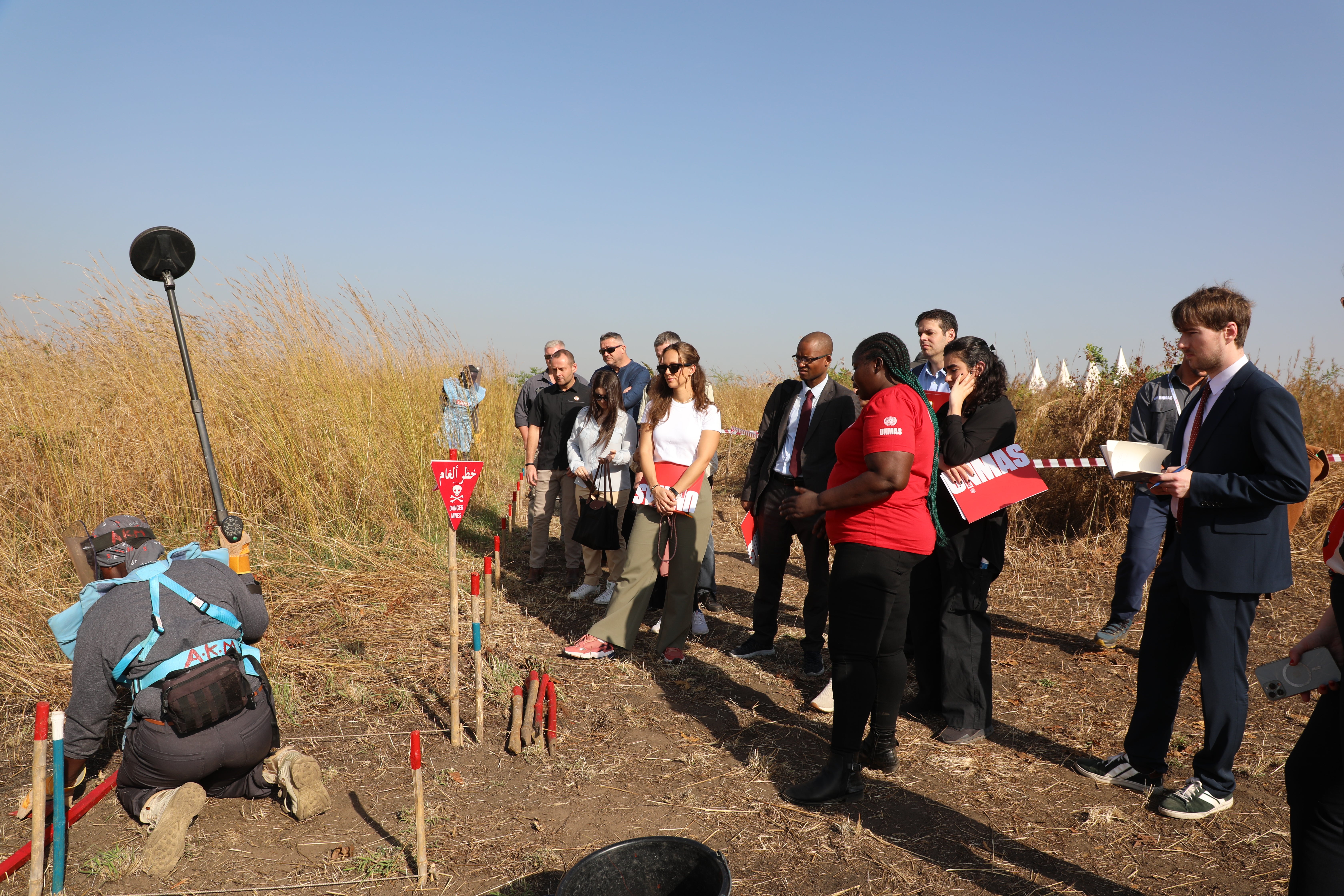
In October 2015, the Security Council adopted resolution 2242 and called for an Informal Expert Group (IEG) on Women, Peace and Security (WPS). This mechanism is intended to enable the Security Council to receive more detailed and nuanced information and analysis related to WPS in specific countries affected by conflict and on how the UN is implementing its WPS mandate on the ground. In 2023, the group is co-chaired by Switzerland and the United Arab Emirates, in conjunction with the United Kingdom as the Council’s penholder on women, peace and security. The IEG guidelines (S/2016/1106) provide a list of options for the Group that includes a field visit at the expert level. The first such visit by members of the IEG was to Lebanon on 28-30 June 2022 (S/2022/593).